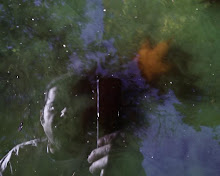I’m not always in my garden, or even thinking about it. My university has been witnessing how a mishandled sexual assault allegation plays out in its internal bureaucracy. After wending its way through the school athletic departments, the case came to rest in the office of the president of the university, an office which has seen its share of turmoil in the last couple years. At the heart of that earlier turmoil was a prolonged and contentious search for a new president that left us with only interim leadership for six months as we went through multiple rounds of searching, leaving faculty disgruntled and morale low. Now, it is not so much the mishandling of the alleged rape of a drunken female student athlete by at least two members of the football team that is at the heart of the current turmoil; the president’s incompetence in that regard is by now old news.
The current turmoil, still less than a year into the new president’s tenure, resides in the mishandling of the aftermath of the mishandling of the sexual assault case. This mishandling comes in the wake of the suicide of a university professor accused by his students of offering to trade better grades for fondling them. Sweeping new sexual harassment prevention and reporting directives have been implemented without input from the university community, and as a face-saving measure in the rape case a widely respected and long-term employee of the university has been made the scapegoat and fired on the basis of dodgy evidence and without explanation, due process, or a chance to defend himself. To be clear, he isn’t accused of anything malicious, but rather of inexpertly navigating a labyrinthine conflict of interest between the family of the victim, the board of regents, and various university offices both athletic and administrative. We were talking about the case as my arts research class was getting started a few days ago.
As a high school teacher, a sometimes gruff and usually groggy one, I at times forget that I am some sort of role model. I think that part of my professional life is modeling the human behaviors that I want to see in the world. Almost. I should say my job is to model the behaviors I want to see in the world in a way that makes sense to high school students. One beautiful day a few years ago, before I had a pond of my own, I sat on the bench near the pond in front of our school looking at the water plants, and my friend Kara came out and sat with me for a while. “Does this mean you’re going out with Mr. Schott?!?” her students were asking her later that day. This is how the world makes sense to tenth graders.
School itself is a strange environment. Students cling physically to each other in all manners of ways from cute to obscene, while we adults in the school seldom touch anyone. We rarely shake hands. The bustle of children that the adults try to avoid can feel like an extension of being lonely in a crowd. We never, never, touch the students. I was myself uncomfortable earlier in the term when a student of mine walked over to where I sat reading his homework and sort of leaned on me, pawed me over, generally got in my space as he eagerly pointed out things I should pay attention to in his paper. He’s a squirmy kid like that, still learning boundaries. But still.
As we discussed the university’s troubles in my art class, in a pleasant gesture another professor walked across the cavernous basement room to say hello to us where we sat at tables talking. “I just wanted to say ‘hi’ to you all,” she announced generally, “I never get to see most of you.” We smiled and murmured pleasantries.
Then, unexpectedly, “I’ve got some questions for you,” my proff said to the other professor as she made to leave. His tone was more serious than his eyes. She paused, wryly skeptical.
“Tell me about the haircut,” he demanded. Her hair was short, with bangs swept dramatically over one eye, coming to a nearly geometrical point. As she looked for meaning in this question, I stared, confounded. “How do you make it into a triangle?” he continued, his close-shaven head tilted up to look at her, the smile creeping into his voice.
“Gel,” she said to him, stepping close, leaning into him, her hand on his shoulder. “Lots and lots of gel.” She looked up to the rest of us and explained, “He likes it when my hair is longer.” How, I wondered, could she know he thinks that?
“Gel,” he said. “Maybe I should try that.”
She ran her hand across his head, more so than through his close cut hair. “Maybe we can get you a die job, too,” she smiled. She didn’t rub his shoulders or poke him in the tummy or kiss his forehead, but at this point, if she had I wouldn’t have been surprised.
When I recounted this scene to a friend, I had to ask myself what they were modeling so unselfconsciously in front of their students, not only at a time when sexual harassment policies at the university are on everyone’s mind, but oblivious of them while in the middle of a discussion about them. They weren’t modeling respect; any faculty member would have that for these two. It was something more than that, a calm assurance in their playful humor and gentle affection for each other of the sort that I had never seen in a professional environment before. It makes my spirit smile to even remember it. Maybe being out of the garden isn’t such a bad thing.
Monday, October 6, 2008
Subscribe to:
Post Comments (Atom)

No comments:
Post a Comment